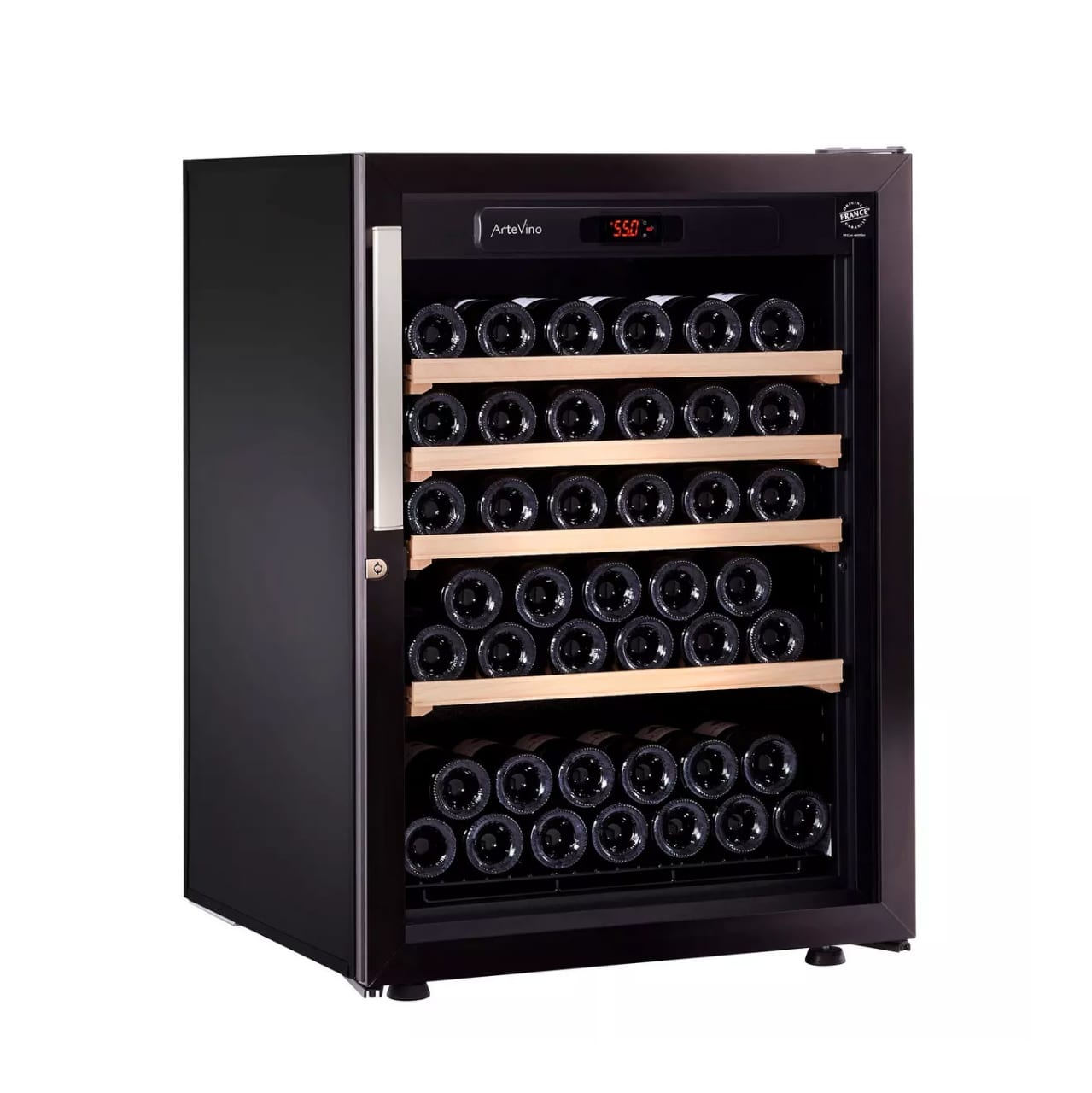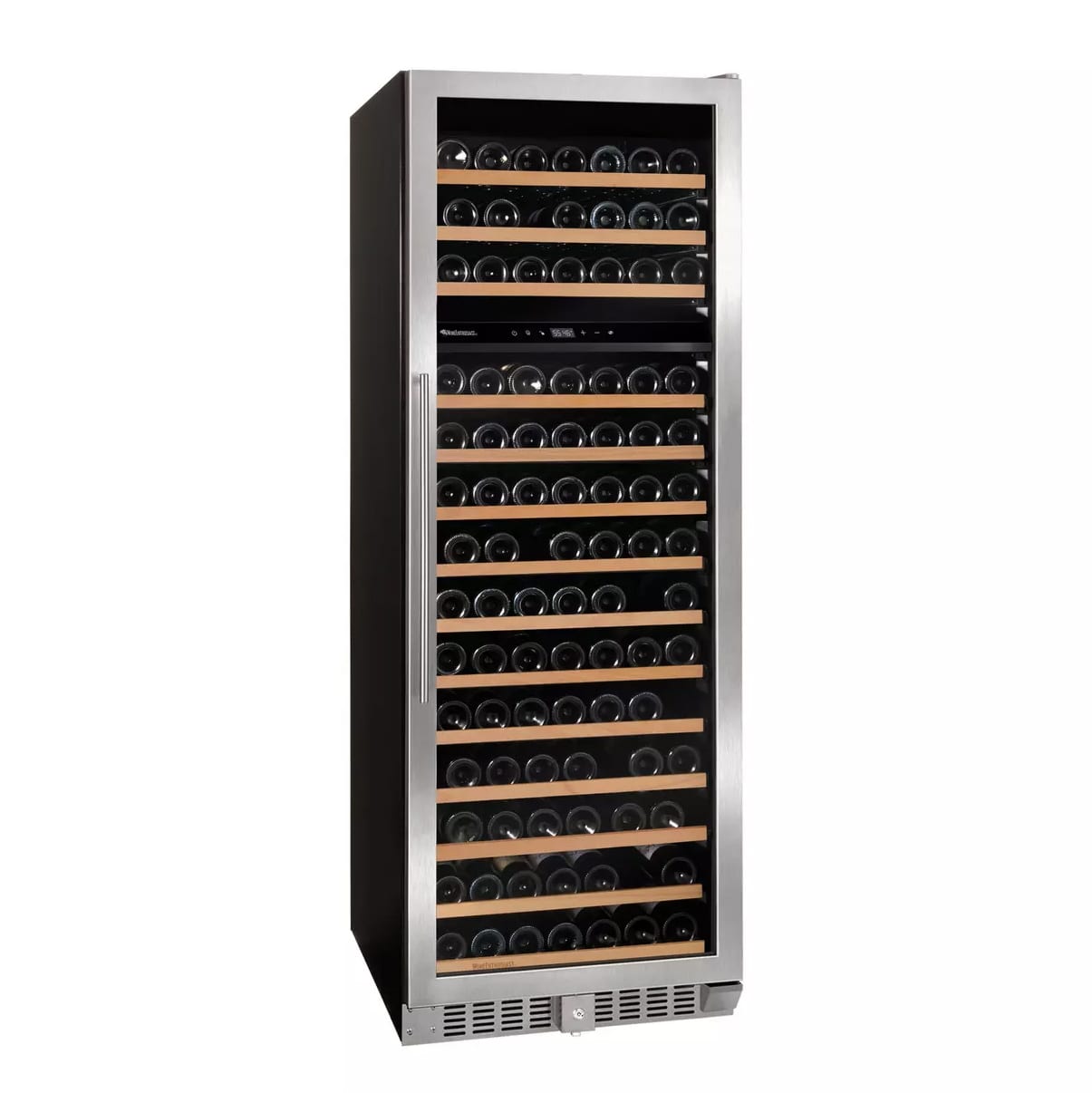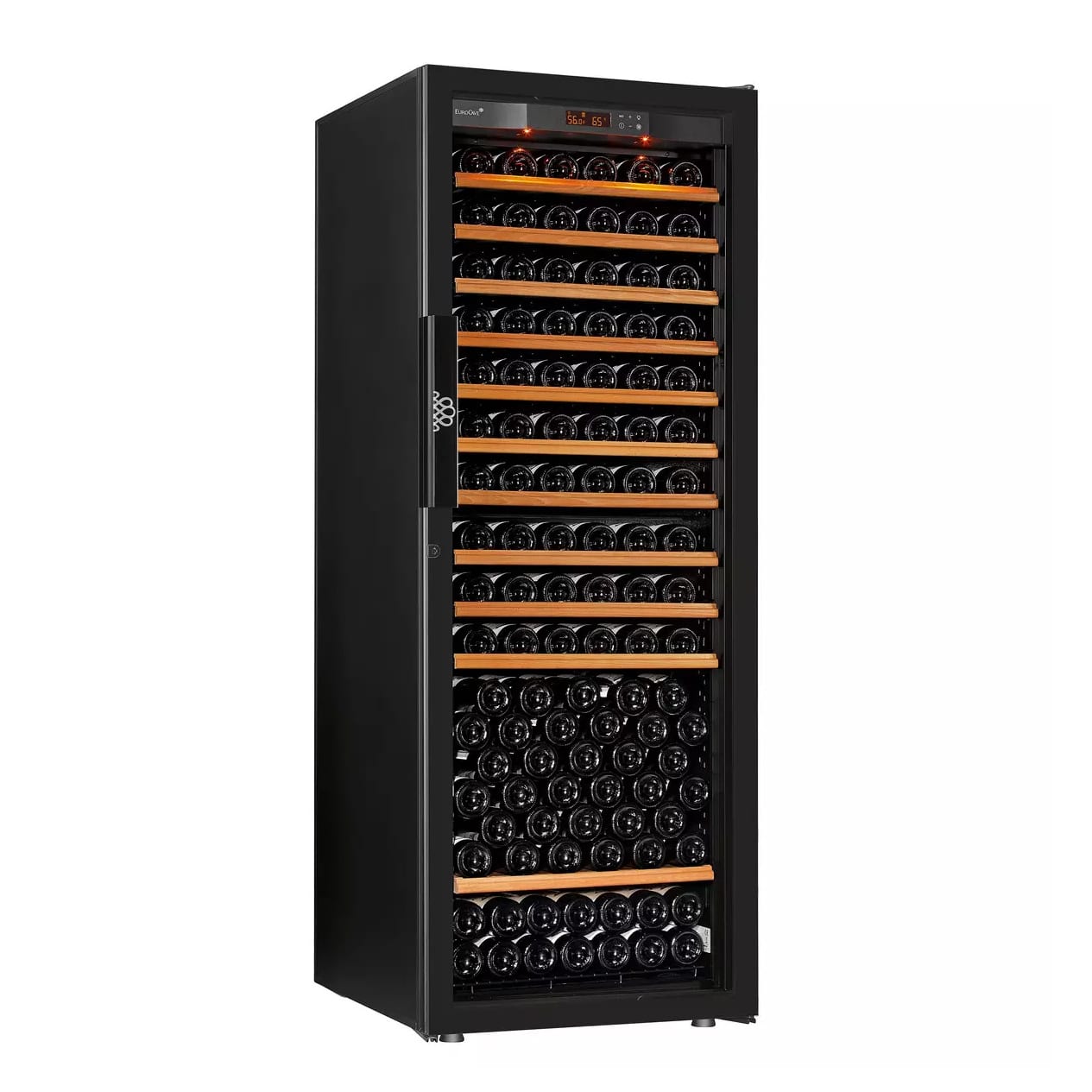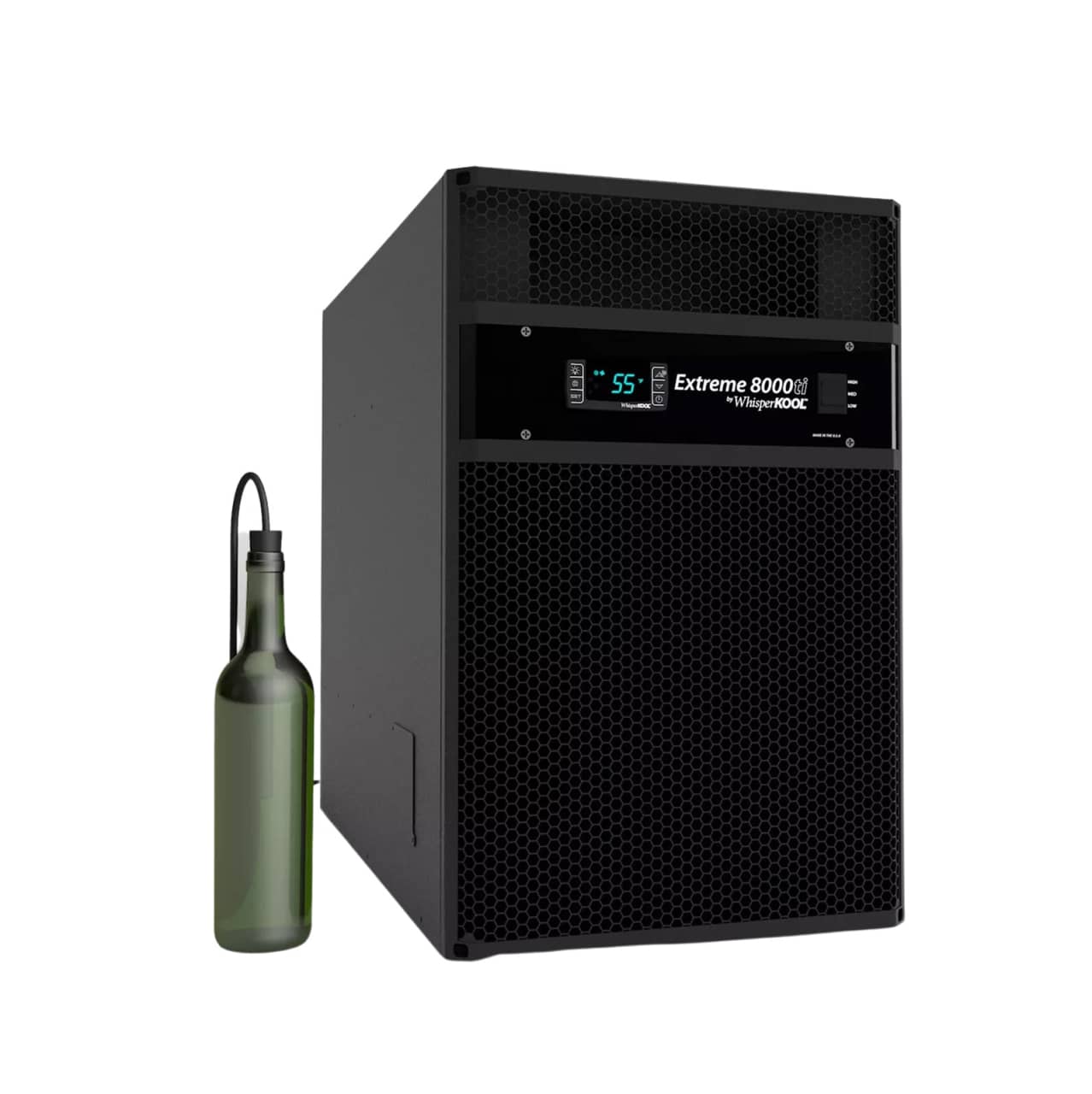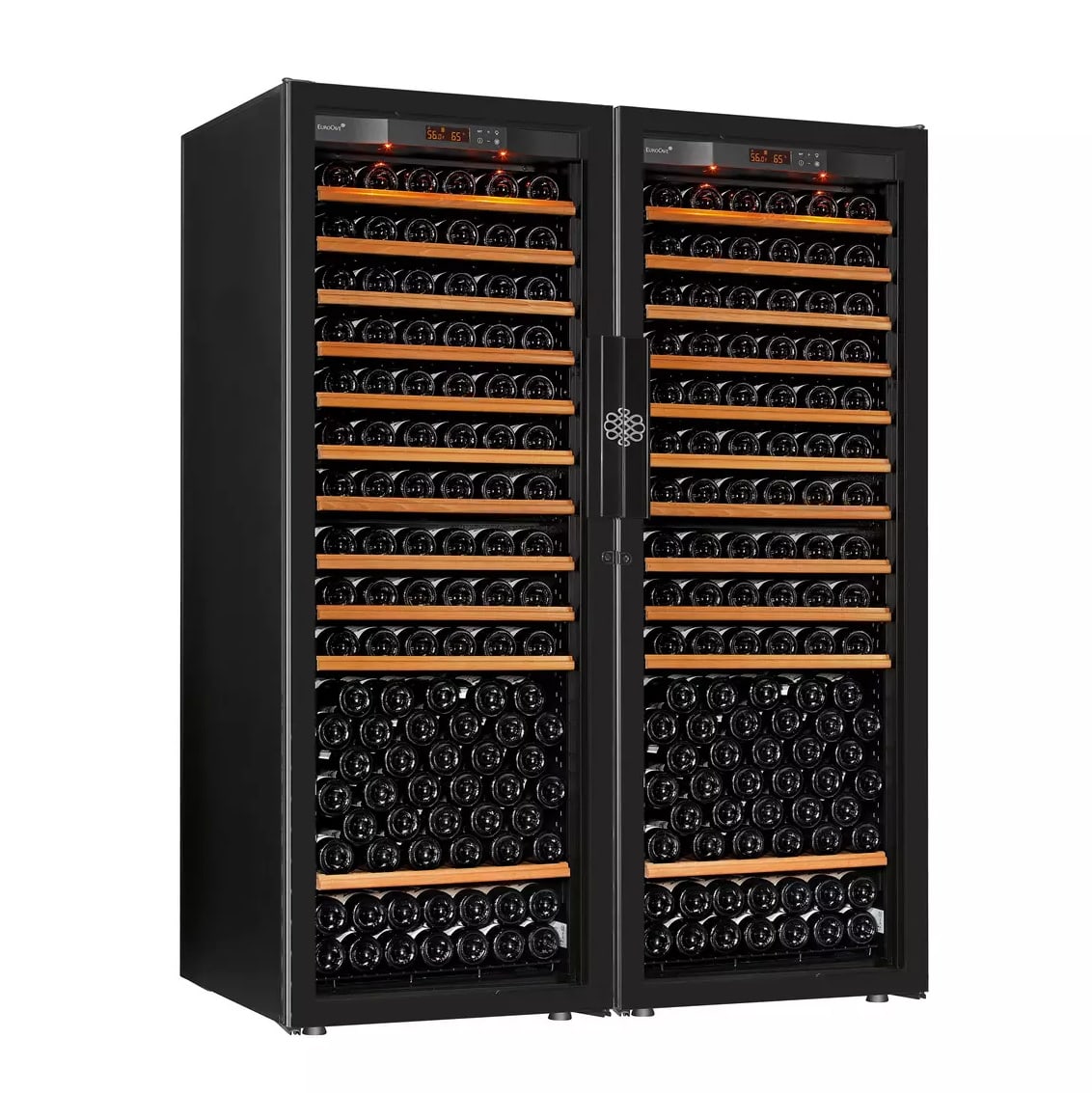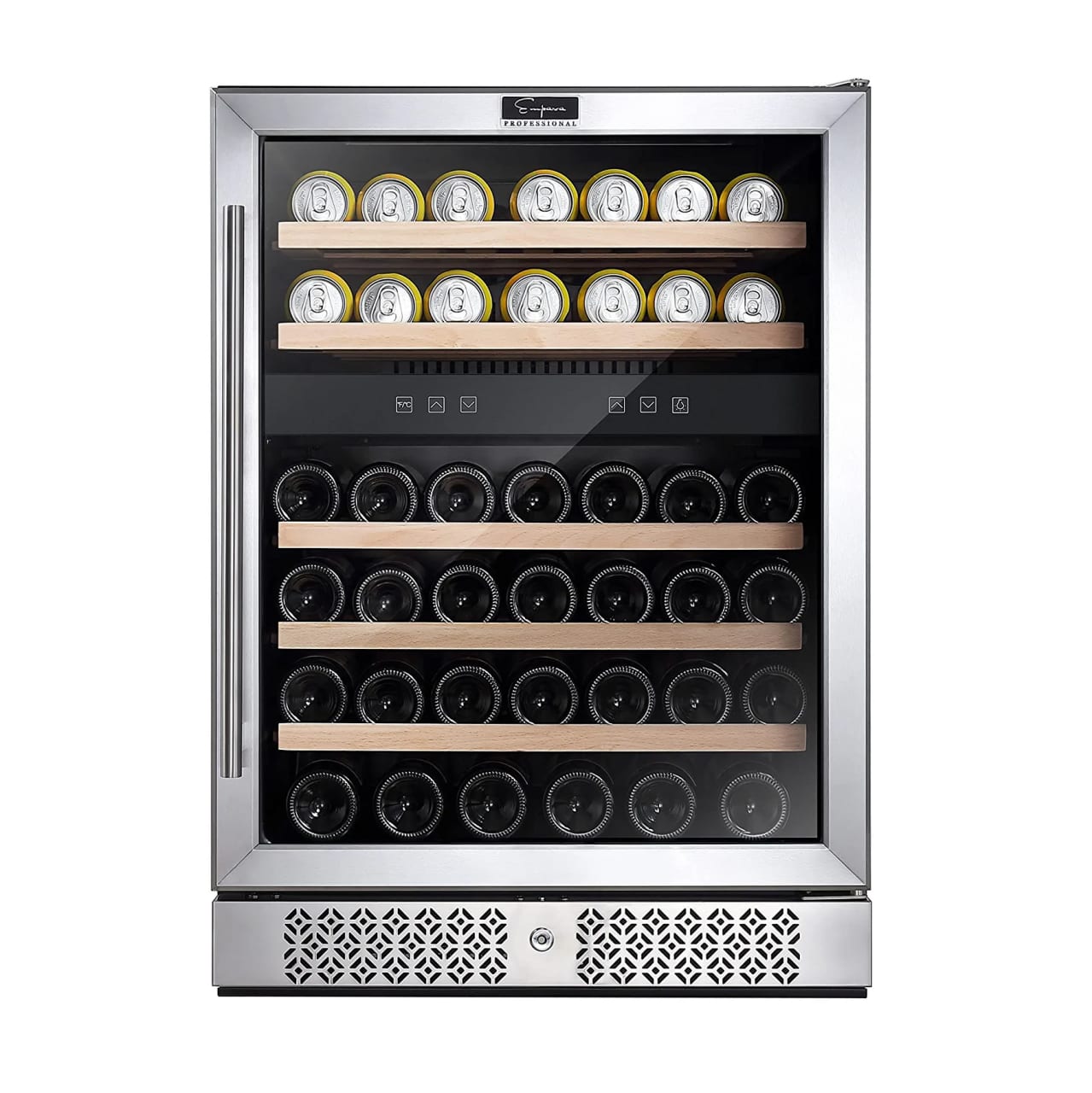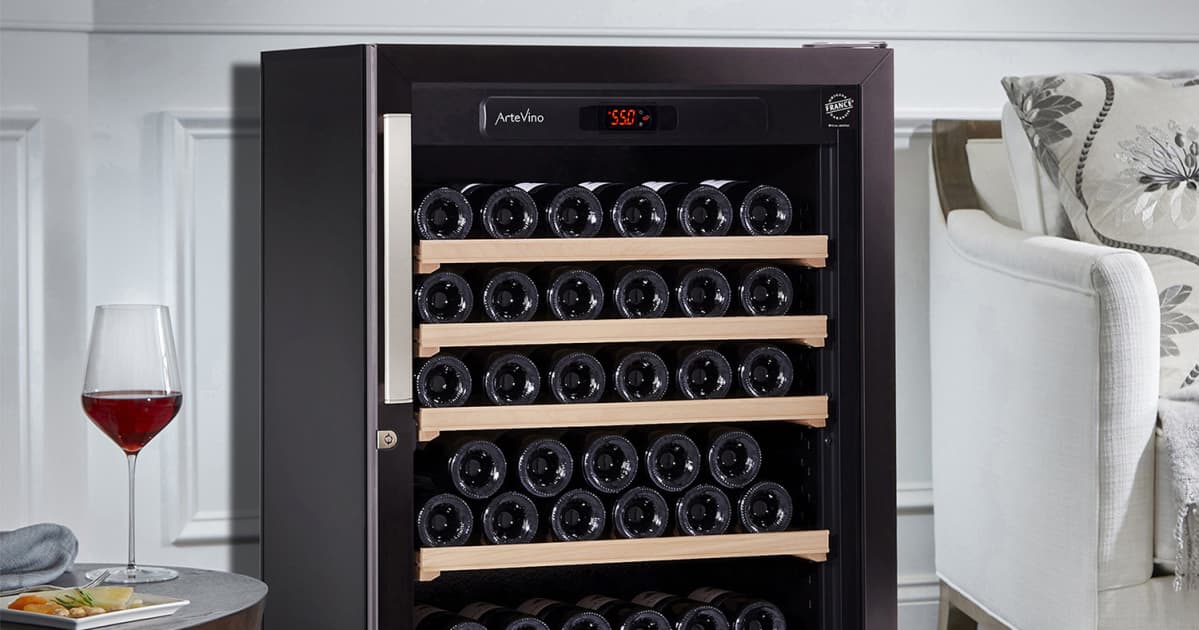
The Best Wine Coolers and Fridges to Store Your Bottles, According to Pros
When it comes to choosing wine refrigerators, it may feel a bit like a real-life version of “Goldilocks and the Three Bears.” Is this one too small? Too big? Too expensive? Does this one accommodate too few large bottles?
Great wine refrigerators range in price from about $400 to $12,000 or more. The best of them will hold your wine around 55 degrees Fahrenheit, give or take five degrees in each direction. Other important considerations include how many bottles they hold and whether or not they have separate colder zones designated for white and sparkling wines. Upgraded models may also offer UV-protectant glass, LED lighting and other extras, at a higher price point.
We tapped the best sommeliers, winemakers, glassmakers, food and wine writers, chefs and restaurant professionals in the business for their recommendations. From models that can stand in for an entire wine cellar to those that can accommodate both your boutique collection and your favorite cigars, these are the best wine refrigerators from those in the know.
For the mindful spender
Brooklyn-based freelance food and drink writer Shelby Vittek recommends an updated version of a small wine fridge she’s been using for years: Wine Enthusiast’s VinoView 28-Bottle Compressor Wine Cooler. “I was in college when I bought it, so the price tag was the main selling point,” she says of her own model, which was an earlier version of this fridge. The wine fridge, she notes, “doesn’t have two zones, but that works for me.” The top and bottom rows can accommodate larger Burgundy bottles, and the rest are designed to fit standard Bordeaux bottles or slim Riesling bottles. “When I bought my fridge, I was a broke college student living in a top-floor apartment that had uncontrollable radiators,” she says. “I didn’t want my wines to be cooked by the fluctuating temperatures.” The fridge, which retails for under $400, has a temperature range of 39 to 65 and is definitely a great value for the money.
For the all-around collector
For an all-purpose wine refrigerator, invest in a top brand that will last a lifetime. Simone FM Spinner, a Denver-area wine and travel writer and founder and CEO of Wine Rocks & Chasing Grapes, trusts her EuroCave Artevino S. She says the single-zone fridge works well for red, white and sparkling wines. The 98-bottle single-zone refrigerator can hold bottles between 48 and 59 degrees, an acceptable range for keeping wines from degrading (though she notes that some may find this “cellar temp” too warm to be readily drinkable). The wine refrigerator “easily adapts to various bottle formats,” says Spinner, meaning that wider Burgundy bottles, or large-format bottles, will fit without issue.
The Eurocave line of wine refrigerators tend to be higher priced, but Spinner explains that the price tag comes with bonuses worth paying for. “I believe in paying once for quality, because my favorite wines that I have painstakingly collected over the years deserve the same quality.” This refrigerator, she adds, is “vibration-free,” which is important for collectors who care about the integrity of their wines because vibration can disturb sediment in wines and create microscopic chemical reactions, causing them to age prematurely. The tinted glass door also protects wine against UV light, which can also damage wines.
For the single (zone) minded
“I do not think it is necessary to have a top-of-the-line fridge to enjoy wine,” says Kathleen Standridge, wine director at The Shipwright’s Daughter in Mystic, Conn. Standridge’s pick for best wine fridge is less than half the price of some of the high-performing EuroCave units (she uses a discontinued 151-bottle EuroDib; the similar, upgraded model is the 168-bottle fridge). The fridge costs about half as much as the comparable EuroCave, making it a good value pick for those who have a lot of bottles to store. The fridge is useful for people who wish to use it as a makeshift cellar, or for those who use it more as a backup refrigerator.
The temperature range extends from 41 to 64, and the fridge has sturdy wooden shelving and an LED display. Although the fridge lacks some of the more expensive upgrades (UV protection, alarms, dual zones), Standridge stands by it. “The reality is that the compressors and humidity controls on all these fridges are relatively comparable,” she says. “What is different about them is mostly the finishes, features, whether they are dual climate, and how many bottles they store.”
For the chilled wine-lover
“Maintaining the temperature of your wine is essential for your investment,” says Jim Shirley, chef-owner of six eateries in Santa Rosa Beach, Fla., including The Great Southern Cafe and The Bay. Shirley’s favorite refrigerator for both restaurant and at-home use is the N’Finity LX Dual Zone Max. The fridge “allows you the flexibility to use it as all long-term storage or ready-to-drink,” he says, noting that it’s a premium model, but the higher price point brings more durability and quality materials. Less expensive fridges “tend to require assembly and are made of pressed wood and veneer,” notes Shirley. “They work great, but don’t like to be moved,” unlike the N’FINITY, which comes fully assembled and is made from stainless steel,
The N’Finity “makes for a dramatic statement piece while still doing an exemplary job of storing wine, he says.” Features for this price include two temperature-controlled areas (a 20{dd3cf16dc48cbccde1cb5083e00e749fe70e501950bc2e0dea1feff25a82382f} upper zone and 80{dd3cf16dc48cbccde1cb5083e00e749fe70e501950bc2e0dea1feff25a82382f} lower zone), each with a range of 41 to 66 degrees, and flexible racks that fit bottle shapes as diverse as Riesling and Champagne bottles. Shirley also notes the fridge’s efficient motor. “No one wants a fridge that makes them feel like they have tinnitus, so a motor that runs smoothly and quietly is a must for upscale wine refrigerators,” he says.
For the wine professional
With its nearly 200-bottle capacity (and nearly $6,000 price point), the EuroCave V-Pure-L is a refrigerator for the collector with a midlevel budget, says wineglass designer Kurt Josef Zalto of Austria-based Josephinenhütte. “There are different racks for each bottle shape, designed to be pulled out,” he says. The fridge can keep temperature and humidity levels constant in three different zones, and offers one large compartment for long-term storage, another for red wines and one cooler space for white wines and Champagne. Low-heat LED amber lighting allows for visibility of stored wines, and a touchscreen lets you easily control humidity and temperature settings. There’s also a built-in alarm with alerts if there are fluctuations in temperature or humidity beyond acceptable levels. Wooden shelves on wheels can be easily pulled out, and additional racks can be added, “on which opened bottles can be placed upright and taken out directly for serving,” a wine professional’s dream.
For the spatially inclined
For those looking for an installed cooling system, the WhisperKool Self-Contained Extreme 8000ti Cooling System, is the way to go, says Kathleen Ward, winemaker for Napa Valley’s Theorem Vineyard, located in the Diamond Mountain District AVA. “A cellar cooling unit is an investment,” she says. “As a winemaker, my wine collection kept growing over the years, and after filling up a couple wine fridges, I realized I needed a small cellar.” The qualities most important to Ward were preventing damage to her collection, temperature and humidity maintenance and noise control. WhisperKool allows for remote access, so Ward can check on the status of the cellar when she’s out of town. She also considers it reliable and easy-to-install. If you have the room to expand to a proper cellar for your collection, the WhisperKool may be a good return on the investment.
For those with extremely large collections
If your inclination is to purchase a fridge in lieu of building a cellar, the EuroCave Pure Double L, which holds an astounding 256 bottles, is the pick for you. “It is well-built with adjustable shelving and 10 different temperature zones, allowing for storing whites and reds in the same cooler,” says Patrick Saboe, director of winemaking for The Wine Foundry and Anarchist Wine Co. in Napa, Calif. For people who prefer certain reds to be kept a little cooler than other types of reds (say, a Burgundy a few degrees under a Bordeaux), this sophisticated cellar allows for such differentiations, and the design handles various bottle shapes and sizes. The brand claims this wine refrigerator uses up to 55{dd3cf16dc48cbccde1cb5083e00e749fe70e501950bc2e0dea1feff25a82382f} less energy than traditional wine cabinets. While the Pure Double L is a major investment, it’s less expensive than a full-fledged, build-out of a basement wine space, so this is a useful unit to consider if you don’t want to launch a full construction project.
For the wine and cigar collector
Collectors wishing to store both wine and cigars should consider the CigarLoong Cooler Humidor, says Maia Parish, sommelier and owner of The Wine Suite. Parish, who is based in Denver, Colo., appreciates that it can handle both needs. This humidor can hold up to 15 bottles and 50 cigars. Dual zones split the sections in half, keeping the contents at separate temperatures. “Because dual zones require the fridge to be split in half, you lose some storage room,” Parish says. The humidor section, in particular, consumes a lot of the space of this unit, and the dedicated wine storage space—only 15 bottles—is noticeably smaller than most other units. Still, for cigar enthusiasts in particular, this is a great way to marry storage for two complementary interests. Additional features like colored backlighting, remote controls and Bluetooth monitoring add to the experience.
For the imminently flexible
The 46-bottle capacity Empava WC04D 24-Inch Dual Zone Wine Cooler Beverage Fridge can be used either as a free-standing unit or as a built-in, as the unit’s width, depth and hinge clearance allow for it to be placed underneath a kitchen counter. That’s just one reason that Justin Chearno, wine director and partner of The Four Horsemen in Brooklyn, New York, prefers it to all other wine fridges. “The fridge has a top section for colder wines between 40 and 50 degrees, the bottom between 50 and 60 degrees, and you can fit Bordeaux and Burgundy bottles inside,” he says. Shelving, he adds, can be removed, allowing for storage for large-format bottles. Chearno notes that at this price, you’re getting a quality compressor: “The two fridges I owned before were essentially done after just a year or two,” he says. This Empava also has LED blue lighting, touch control panels and three convection fans that evenly distribute cold air.
The advice, recommendations or rankings expressed in this article are those of the Buy Side from WSJ editorial team, and have not been reviewed or endorsed by our commercial partners.


